After 15 days on strike, 45,000 workers from United States’ telecommunications company Verizon marched in to work on August 23 after getting agreement from their stubborn employer to bargain.
The communication and electrical workers will be working under their old contracts while talks continue. They agreed not to strike again for 30 days.
During the strike, which stretched from Virginia to Massachusetts, Verizon was unable to provide timely installation and repairs, and reports of outages plagued the company.
-
-
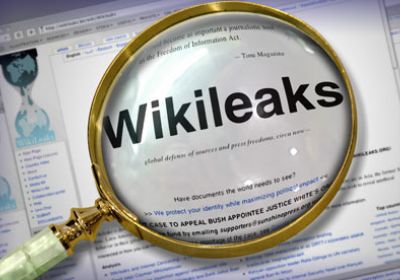 The tens of thousands of cables released by WikiLeaks since August reveal a wide variety of lies told by the US government and crimes in which the US government is complicit or helped cover up. www.wlcentral.org provides a daily rundown, with links, to some of the key cables. Below are three cables that depict the apparent covering-up of US military war crimes in Iraq; the riding rough-shod over the popular will of nation in Ireland; and the way the US government seeks to divert attention from its crimes with calculated media spin.
The tens of thousands of cables released by WikiLeaks since August reveal a wide variety of lies told by the US government and crimes in which the US government is complicit or helped cover up. www.wlcentral.org provides a daily rundown, with links, to some of the key cables. Below are three cables that depict the apparent covering-up of US military war crimes in Iraq; the riding rough-shod over the popular will of nation in Ireland; and the way the US government seeks to divert attention from its crimes with calculated media spin. -
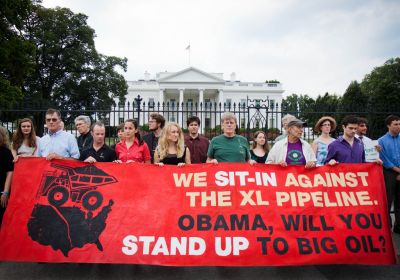 National environmental justice and indigenous rights organisation the Indigenous Environmental Network (IEN) that took part in the largest act of civil disobedience in decades at the White House in Washington DC from August 20 to September 3. The purpose of these actions was to send a direct message to President Barack Obama to deny approval of the 2739 kilometre Keystone XL pipeline.
National environmental justice and indigenous rights organisation the Indigenous Environmental Network (IEN) that took part in the largest act of civil disobedience in decades at the White House in Washington DC from August 20 to September 3. The purpose of these actions was to send a direct message to President Barack Obama to deny approval of the 2739 kilometre Keystone XL pipeline. -
“We are not evacuating Rikers Island,” New York Mayor Michael Bloomberg said in a news conference on August 26. Bloomberg announced a host of extreme measures being taken by New York City in preparation for the arrival of Hurricane Irene. These included shutting down the public transit system and the unprecedented mandatory evacuation of about 250,000 people from low-lying areas. But in response to a reporter’s question, the mayor stated in no uncertain terms (and with more than a hint of annoyance) that one group of New Yorkers on vulnerable ground would be staying put.
-
 What began several months ago with students taking over their high schools and universities has swelled into one of the largest protest movements in Chile’s history. Student protests, involving tens of thousands of students and teachers, have dovetailed with angry demonstrations of workers in other sectors. The education protests swelled to 600,000 on August 25, the second day of a 48-hour general strike called by a confederation of 80 unions.
What began several months ago with students taking over their high schools and universities has swelled into one of the largest protest movements in Chile’s history. Student protests, involving tens of thousands of students and teachers, have dovetailed with angry demonstrations of workers in other sectors. The education protests swelled to 600,000 on August 25, the second day of a 48-hour general strike called by a confederation of 80 unions. -
A further 52 people were arrested at the White House on August 22 for taking part in an ongoing sit-in. They are trying to push President Barack Obama to stand up to Big Oil and deny the permit for a huge new oil pipeline. Obama will decide this year on TransCanada’s permit for the Keystone XL tar sands pipeline. This would send 900,000 barrels a day of the world’s dirtiest oil to US refineries, allowing further development of the Alberta tar sands in Canada. The pipeline would pass through Montana, South Dakota, Nebraska, Kansas, Oklahoma and Texas.
-
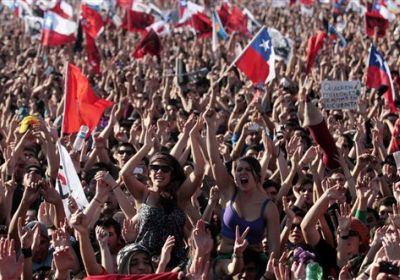
The ongoing student protests in Chile are an unwavering accomplishment aimed at combating the social injustice infecting the country's education system. What started out as a series of peaceful protests in May has become a movement that unites students, artists and much of the general population.
-
A confidential United States cable released by WikiLeaks on July 29 documents the arrest of controversial Malaysian blogger and Malaysia Today editor Raja Petra Kamaruddin. Kamaruddin had been outspoken in his criticism of the government. On September 12, 2008, Kamaruddin was arrested at his residence under the Internal Security Act (ISA) ― which allows for detention without trial. Kamaruddin’s arrest came days after Malaysian Prime Minister Abdullah Ahmad Badawi threatened to use the ISA to repress those purportedly stoking racial and religious tensions.
-
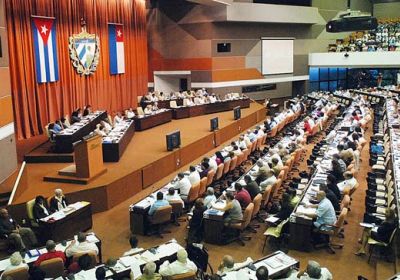 With some exceptions, the powerful international media has ignored a recent Cuban parliamentary bill that would deepen democracy on the island. The reason is obvious: the news is not convenient. The initiative is made within socialist institutions, not in terms of the “transition” that is highly anticipated and promoted by certain hegemonic interests in this world. The idea is to give the green light to an experiment in the new provinces of Mayabeque and Artemisa. If it bears fruit, it would be extended to the whole country through constitutional reform.
With some exceptions, the powerful international media has ignored a recent Cuban parliamentary bill that would deepen democracy on the island. The reason is obvious: the news is not convenient. The initiative is made within socialist institutions, not in terms of the “transition” that is highly anticipated and promoted by certain hegemonic interests in this world. The idea is to give the green light to an experiment in the new provinces of Mayabeque and Artemisa. If it bears fruit, it would be extended to the whole country through constitutional reform. -
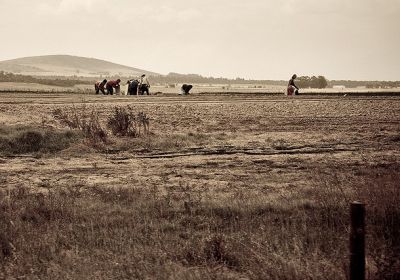 Furious emerging farmers in the Kareeberg municipality in South Africa’s Northern Cape Province have decided to stop paying rent for the municipal-owned land they are farming. These farmers have been robbed, prevented access to and ownership of land by colonial conquest, segregation and apartheid. Now, South Africa’s protection of capitalist property and its neoliberal state policies are keeping them landless.
Furious emerging farmers in the Kareeberg municipality in South Africa’s Northern Cape Province have decided to stop paying rent for the municipal-owned land they are farming. These farmers have been robbed, prevented access to and ownership of land by colonial conquest, segregation and apartheid. Now, South Africa’s protection of capitalist property and its neoliberal state policies are keeping them landless. -
Britain: Living standards deteriorating “Almost 40% of households saw their finances deteriorate between July and August, according to a survey by the financial information company, Markit. “The study, of 1,500 adults, showed finances worsened at their fastest pace since February 2009, in the middle of the last recession. “Many reported a rise in debt levels and a fall in savings and income. “Just under 6% of households reported an improvement in their financial situation.
-
The new government of Papua New Guinea, led by prime minister Peter O'Neill, has announced plans to revert ownership of minerals and resources to traditional landowners. Mining minister Byron Chan said in a speech on August 11 the government would seek to give traditional owners legal ownership of resources under the land and sea. Currently, the PNG government owns anything more than six feet under the surface. Chan also promised an urgent review of mining and environmental laws, especially those involving deep sea mining.